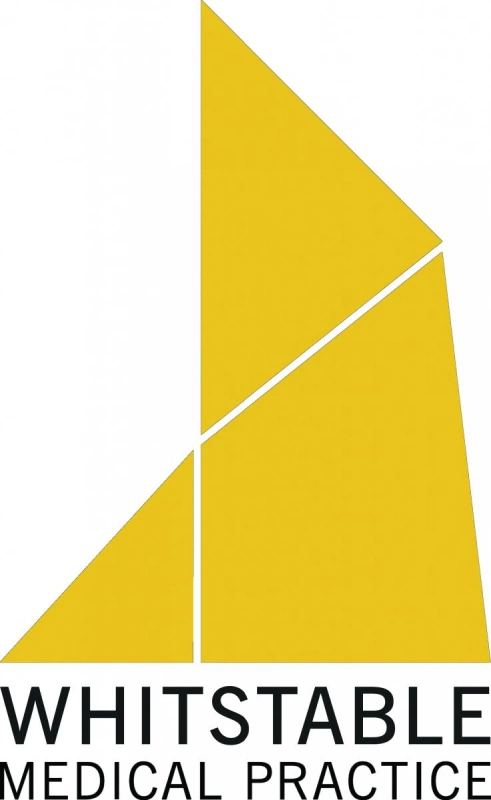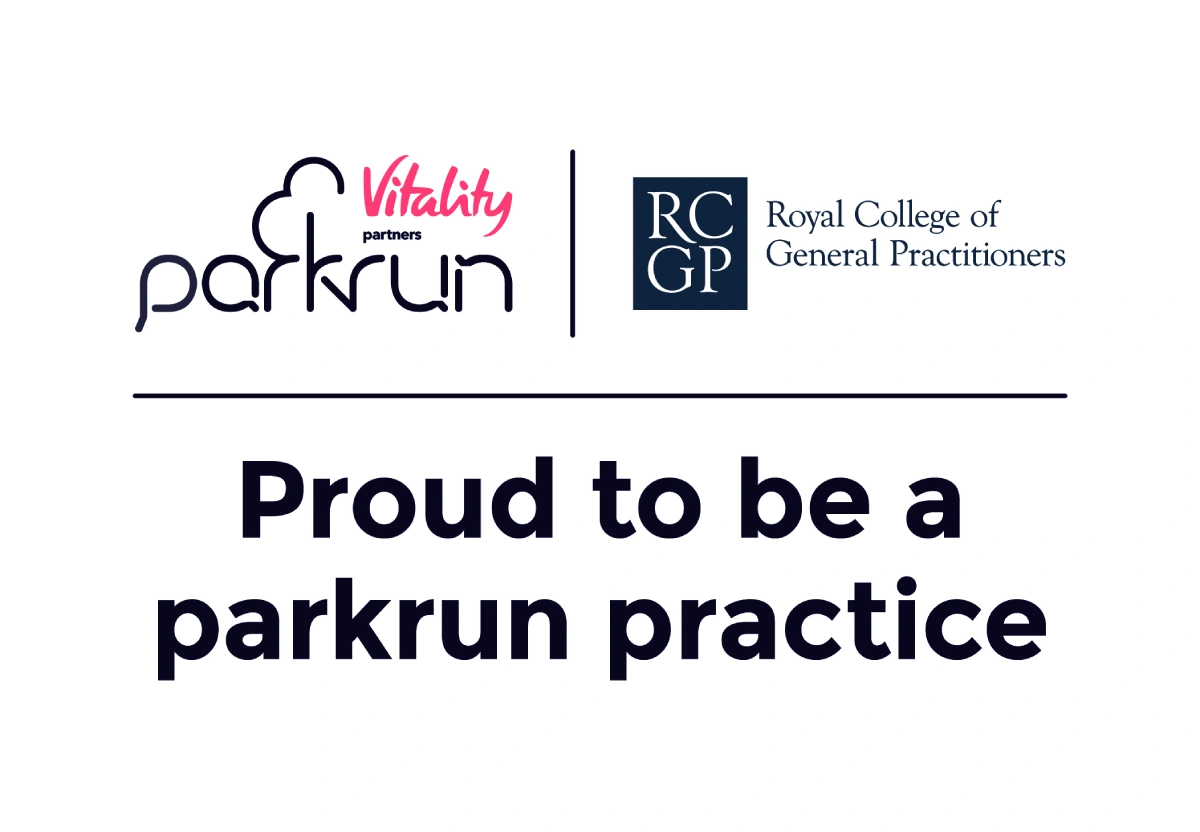We use cookies to help provide you with the best possible online experience.
By using this site, you agree that we may store and access cookies on your device. Cookie policy.
Cookie settings.
Functional Cookies
Functional Cookies are enabled by default at all times so that we can save your preferences for cookie settings and ensure site works and delivers best experience.
3rd Party Cookies
This website uses Google Analytics to collect anonymous information such as the number of visitors to the site, and the most popular pages.
Keeping this cookie enabled helps us to improve our website.
Patient Participation Group Newsletter: January 2025

It’s the New Year! Is it a Happy New Year?
Welcome to our first Newsletter of 2025. Did you make New Year resolutions, and then promptly forget them?
Don’t worry! It is never too late to press the pause or reset button, and review where you are and where you would like to be.
So, this issue looks at a few pointers which could make a difference for you and your family.
Self-care
Self-care means looking after your body and your mind. It should become part of our normal routines, so that we stay fit and well, and can care for our loved ones.
Simple changes:
- Nutrition: pay attention to what you eat and drink, make each meal or snack as healthy as you can. Stay hydrated
- Exercise: regular physical exercise is essential; find an activity you like and can stick to. Have a walk every day, weather permitting
- Sleep: have a regular routine
- Work-Life balance: too much work makes us dullards. Remember to keep in contact with friends and family.
Knowing when and where to go for help is an important part of self-care. It is not just about visiting your GP. Pharmacy teams can also direct you to relevant services and 111 is a valuable resource through which you can access mental health advice.
The NHS website offers extensive information on how to care for yourself and your family. Find out more on the NHS website.
The self-care forum also provides useful fact sheets you can download.
While we often think that our GP should be the first port of call when we are not feeling well, it’s worth remembering that pharmacists can offer advice on a range of illnesses, such as coughs, colds, sore throats, ear infections and aches and pains.
The NHS needs your blood!
The NHS needs around 5,000 blood donations a day. In particular, people aged 17-35 are urged to volunteer.
Blood stocks are critically low. In an hour by donating one pint of blood, you could save three lives.
What are patient coordinators?
Patient coordinators are the link between patients and the Practice’s services. They have been trained to ask questions, listen to the patients and decide together who best can deal with the problem, and whether it is a routine issue, or needs more urgent attention. All information is treated with the strictest confidentiality.
Patient coordinators can also arrange appointments at the ‘same day hub’ – a service where people can be seen without an advance appointment if they have a new condition they are concerned about.
Winter Vaccinations
It’s that time of year when the news is full of stories about overstretched hospitals – the annual winter crisis. Much of the pressure hospitals are under are caused by the number of people in hospital with flu.
So, it’s particularly important to get vaccinated against flu. If you have not had a flu (or RSV) vaccination and are eligible, contact the practice after to book an appointment. Covid vaccinations are available from local pharmacies.
You are eligible for the flu vaccine if you are over 65, or will be by 31 March, as are children aged 2 and 3 - as well as other groups listed here.
The RSV vaccine provides protection against Respiratory Syncytial Virus, a common winter bug, which leads to many hospital admissions during the winter. You are eligible if you are pregnant (28+ weeks) or aged 75-79.
If you haven’t been invited for a vaccination, please contact the practice.

Resolving to be kind to yourself!
Our local Revival Centre in Whitstable High Street says we should be kind to ourselves this New Year. Rather than make drastic changes which become too challenging to stick to, shift our thoughts and deeds to being kinder to ourselves, family and others, and nurturing ourselves, family and others.
Rather than: ‘I’m doing Veganuary and Dry January and losing 2 stone before March’, (which are huge changes) take things more steadily, for example aim to eat more vegetables each day, drink to drink more water each day and become more active.
Revival has a calendar filled with opportunities to prioritise your mental health without spending a fortune. Its space is designed to be welcoming and facilitates sharing and support, creating a community.
Drop in and see them or check out.

Alcohol
The recommended limit for both men and women is 14 units a week. Six or more units at a time is a binge, however you drink - to excess, binge or steady - it will affect your liver. Change how you drink by drinking only water before you go out for a night of fun and reduce the alcohol you drink by making every other drink a soft drink.
14 units of alcohol is equal to:
- 6 pints of beer or cider
- 6 medium (175 ml) glasses of wine
- 12 glasses (25 ml) of spirits
Drugs
No drug is a “safe” drug, because we do not know how our body will respond. If you know of anyone who regrets using help them to get help.
Keeping Well
Hand washing with soap and water continues to be important. It is one of the best ways to prevent catching or passing on an infection. That, and covering the nose when sneezing and mouth when coughing.
Did you know that by looking after your teeth, you could be looking after your heart? The British Heart Foundation says that people with gum disease were 69 per cent more likely to develop Type 2 diabetes than people with healthy gums.
While, sadly, not everyone can get to see to a dentist easily, we can look after our oral health, including by using an electric toothbrush; getting a new toothbrush (or head) every three months; flossing daily and brushing teeth twice daily for two minutes each time - following brushing, don’t rinse, ‘spit’, because toothpaste has protective properties.
Make an appointment to see a dentist at least every year or as advised by your dentist.

Sepsis
Sepsis is a life-threatening reaction that can arise from any infection. Around 48,000 people die from sepsis in the UK every year and 80,000 have life changing after effects.
Half of all surviving sepsis patients die within two years, and research has identified risks associated with this:
- Advanced age
- History of cancer (doubles the risk)
- Previous sepsis in the last six months by 48%
Anyone with the above risks needs to be aware of their risk and ensure that their families take preventative action such as avoiding visiting them when they are unwell, washing their hands.
If you have survived sepsis, remember to take your temperature if you feel unwell, and contact 111, or your medical practice for further advice and support. Always have the vaccinations you are offered.
Sweets (sugar)
Sugar, as most of us know, is bad for our teeth! So set a target: go without sweets for one day a week; then for two days per week.
If that is too difficult reduce the amount you eat each day. But some treats are good for you! A square of plain chocolate (85% cocoa solids) every day is claimed to be good for the brain.
Essential contact lists ...
Find contact numbers now for reliable trades people who can deal with urgent repairs.
Local safe traders can be found via: Trading Standards Checked trades people
Our Future Health
The UK’s largest ever health research programme, designed to help people live healthier lives for longer through the discovery of more effective approaches to prevention, earlier detection and treatment of diseases.
Domestic Abuse
Domestic abuse is a pattern of behaviour in a relationship that is used to gain or maintain power and control over an intimate partner. The Christmas and New Year period always sees an increase in domestic abuse. If this has happened to you, do not continue in silence, seek help.
- 2.4million people in England and Wales experience domestic abuse every year.
- At least two people a week are killed by their current or ex-partner.
- One in five under 18s will have lived with domestic abuse at some point in their childhood.
- 37 per cent increase in violence and abuse against women and girls in the last five years.
- (Information from Kent County Council) Call 0808 168 9111 this line is open 24 hours day 7 days a week
- Respect: a confidential helpline, email and webchat service for domestic abuse perpetrators and those supporting them 0808 802 4040
- Galop: helpline for LGBT+ people experiencing abuse or violence
- Karma Nirvana: The national Honour Based Abuse Helpline
- SignHealth: provides advice and support for deaf adults and young people experiencing domestic abuse.
- Protection Against Stalking: committed to raising awareness of stalking and supporting victims and their families.
- Kent Cyberstalking Clinic: access help with a live cyberstalking, cyber-enabled stalking or domestic abuse related stalking issue.
- Refuge: If you would like to go to a refuge (a temporary place to live for you and your children) call the National Domestic Helpline on 0808 2000 247

Walking for health
One You Walk and Talks are designed to get you active and meet new people.
- Whitstable Walk - Every Wednesday 10.45am from Whitstable Harbour, lasting 45 minutes: Find out more here.
- Tankerton, dementia friendly walk - Last Wednesday of the month, from Sea View Café, Marine Crescent, Tankerton. Leaving at 10.30am and lasting 30 minutes: Find out more here.
Social prescribing
Did you know that your practice has Social Prescribers who can help you with a vast array of lifestyle and wellbeing advice. Social Prescribers can help you with lifestyle and wellbeing advice. They have access to many different support services and can discuss and signpost you to these.
The benefits of this approach include helping people to feel more involved in the community, meet new people and improve health and wellbeing.
Drivers! Your help is needed!
Red Zebra is looking for more drivers for its Community Car Service, which is run by local volunteers for local residents. The service is for people aged over 55 who for whatever reason may find it difficult to use public transport but who can get in and out of a car independently.
The main priority is to help people get to essential appointments such as GPs, hospitals, dentists, Day Centres, and to opportunities for social inclusion. Mileage costs are paid by the client.
If you have your own car and a UK driving licence, please get in touch. It doesn't matter how much or how little time you can spare.
You can really help. Contact 01227 273846 or info@redzebra.org.uk
And the results are in…
Most people who use Whitstable Medical Practice are happy with the practice, according to the latest patient survey. Ninety per cent of people who responded agreed or strongly agreed that their overall experience of the practice was positive.
The results are similar to last year’s survey, with 88 per cent being satisfied with the quality of care and finding the patient coordinators helpful. The number of people saying it was easy to get through on the phone was up slightly (60 per cent this year, 58 per cent last year), and slightly fewer said it wasn’t easy to get through (17 per cent this year, 20 per cent last year).
more local feedback…
During last year, PPG volunteers spoke to people attending the three surgeries to ask about their experience. A large majority rated their experience of the service as very good (89 per cent) or good (6 per cent).
A massive 97 per cent agreed that the practice treated them with compassion, dignity and respect. (Percentages have been rounded up or down to the nearest percent).
Could you claim Pension Credit?
Thousands of people in Kent and Medway could be eligible for Pension Credit, yet many people are still not claiming. Pension Credit can unlock other entitlements such as the Winter Fuel Payment and a free TV licence if you are over 75.
Check if you are eligible here.
Dermatology News - Award for Whitstable Medical Practice
Many congratulations to the East Kent Dermatology Team for its recent Quality in Care (QiC) Dermatology Team of the Year award, won in recognition of its ambitious innovation and enterprise.
In 2015 the Community Dermatology Service at Estuary View consisted of a monthly consultant clinic, located at one site. Replacing a retiring GP, and building on earlier dermatology experience, Dr White became the second clinician to join this clinic, with Dr Bennett joining soon afterwards. As referrals increased it became clear that innovation was required.
Frustrated by lengthy waiting lists, often involving travel across East Kent, Drs White and Bennett, while maintaining their practice as GPs, undertook two years’ further surgical training to perform minor in-house surgery.
With customary WMP energy, commitment and enterprise, and supported by a highly organised, passionate team of three secretaries, the team developed and set about negotiating ‘spaces’ across East Kent, so that patients could be seen locally. This means that patients no longer travel from (for example) Folkestone to see one doctor at Estuary View, but the reverse.
The team now has 22 clinicians - three Consultants, GPs with extended roles, specialty doctors, nurses and support staff. It now delivers more than 20,000 medical and surgical appointments a year from nine locations, including Folkestone, Canterbury, Sittingbourne, Beltinge, Ashford, Estuary View and Ramsgate.
Effective triage ensures short wait times. Supervised by doctors, dermatology nurse practitioners also run clinics, directly alongside the doctor. In April 2021, 370 patients attended the clinic. In August 2024, it had increased to 1,560 patients.
The tailored in-house training programme and collaborative attitude have also been key to recruitment and retention. And the fact that 96 per cent of patients would recommend the service to family and friends really impressed the judges of this national competition, who commented: “I would want to work in this team!”
Find out more about the service here.
Good to know
Dermatology is the study of the skin and its associated structures, including hair, nails and mucous membranes (British Association of Dermatologists).
But - did you also know that the skin is the largest organ of the body?
- Be alert to new and changing lesions, especially if they are rapid.
- Look out for asymmetry or something that looks different.
- Finally, as we age it’s important to moisturise, moisturise, moisturise!



